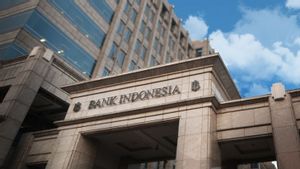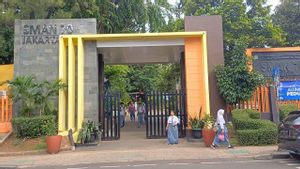JAKARTA - An infectious respiratory infection expert in China, Prof Zhong Nanshan, explained that people who have contracted the Omicron variant of COVID-19 have a very small risk of contracting it again within a year.
"After being infected with Omicron, the patient will produce antibodies with almost the same strength as one dose of the vaccine," Zhong said as quoted by local media.
He made this statement after news that China had immediately issued a 10th edition of the COVID-19 anti-pandemic health protocol guide which was oriented towards economic development.
According to him, the latest edition guide will be conducive for China to gradually open up so that economic development can run smoothly, as reported by Antara, Saturday, December 18.
Earlier, Zhang said the impact of Omicron was not severe as 99 out of 100 infected people recovered within 10 days.
Currently Omicron has spread widely in China, including the capital Beijing, but its pathogenicity will rapidly decrease, said the inventor of China's outbreak of SARS in 2013.
Zhong explained that at the beginning of the pandemic, COVID-19 hit the upper respiratory tract and lungs, but after two years of mutation, the virus causes it to only be concentrated on the upper respiratory tract.
"The fatality rate of Omicron is only around 0.1 percent or the same as the common cold," he said.
He compared it to the H1N1 bird flu which infected 120 thousand Chinese citizens in 2009 which had a fatality of 0.6 percent.
Zhong also encouraged booster vaccinations to be intensified, especially ahead of the mass homecoming season to celebrate the Chinese New Year.
Regarding the issue that Omicron transmission in northern China, such as Beijing, is stronger than in the south such as Guangzhou, Zhong said there was no significant difference in the virus variant detected in the south and north.
He revealed that in Guangzhou and Chongqing in the southwest region, the outbreak was dominated by the BA.5.2, while in Beijing and Baoding in Hebei Province it was dominated by the BF.7 subvariant which was the result of the BA.5.2.
China previously implemented a strict zero-case COVID-19 policy. Throughout 2022 the country has closed access to major cities and economic centers, such as Shanghai, Guangzhou, Xian, and Beijing. The policy has led to a slowdown in economic growth and social turmoil.
Chinese authorities through the Government Council have issued 10 new policies that have relaxed anti-pandemic health protocols since December 7, 2022, including by revoking mandatory PCR test rules and scanning health codes.
The English, Chinese, Japanese, Arabic, and French versions are automatically generated by the AI. So there may still be inaccuracies in translating, please always see Indonesian as our main language. (system supported by DigitalSiber.id)













